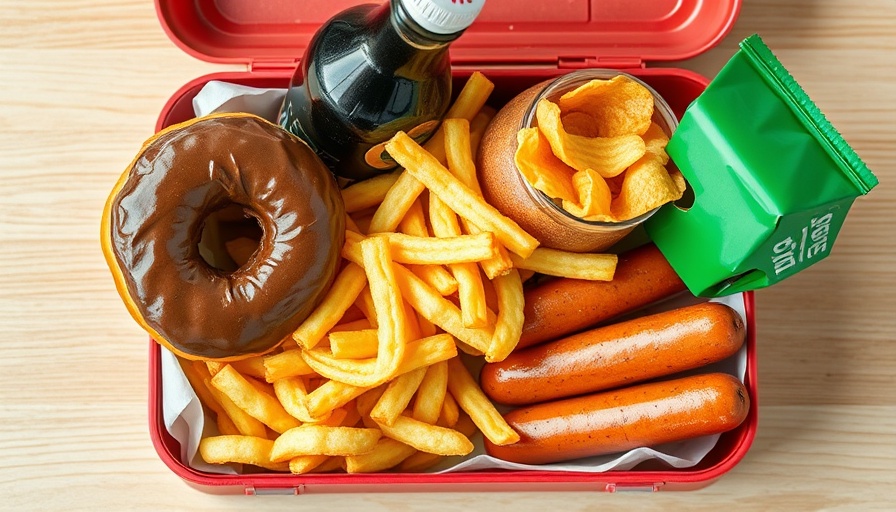
Understanding Ultra-Processed Foods: What You Need to Know
In the ever-evolving world of nutrition, ultra-processed foods (UPFs) have captured the spotlight for over eighteen months, leading to heated discussions and debates. With many still unclear about what these foods actually entail, it’s important to dive into the full picture surrounding UPFs and their health implications.
What Exactly Are Ultra-Processed Foods?
Simply put, ultra-processed foods are items that have been industrially processed, containing ingredients typically not found in a home kitchen. These foods are designed for convenience, often loaded with preservatives, artificial flavors, and sweeteners. While the NOVA classification system categorizes foods into four distinct groups, the definition of UPFs can create confusion due to its broad nature.
The NOVA classification groups foods as follows:
- Unprocessed or minimally processed: These are natural foods treated only to remove inedible parts.
- Processed culinary ingredients: Edible ingredients made from unprocessed foods.
- Processed food: Foods that have added ingredients for preservation.
- Ultra-processed food: Made from substances extracted from foods or synthesized in a lab.
The Health Debate: Are UPFs Really Dangerous?
Despite the rising concern over UPFs, there exists an ongoing debate among nutritionists about whether these foods can be solely blamed for health issues. Some experts argue that not all UPFs are problematic; it’s the individual ingredients and the person’s overall dietary pattern that truly matter. For instance, foods like flavored yogurts or certain whole grain breads can possess beneficial nutrients, while still being categorized as UPFs.
Navigating the Food Aisle: Making Informed Choices
With diverse opinions surrounding UPFs, how do we decipher what to choose at the grocery store? Here are some practical tips for health-conscious consumers:
- Read labels: Pay close attention to ingredient lists and nutritional information.
- Prioritize whole foods: Whenever possible, choose minimally processed items.
- Balance is key: Enjoy UPFs in moderation, ensuring a well-rounded diet with plenty of fruits and vegetables.
Final Thoughts: Empowering Choices for Better Health
Ultimately, the conversation around ultra-processed foods should encourage awareness rather than fear. By acknowledging the nuances of food processing, we can make informed choices that align with our dietary goals. Whether it’s grabbing a quick snack on the go or enjoying a home-cooked meal made up of whole ingredients, being mindful of what we consume empowers us to enhance our health journey.
As you navigate your food choices, aim to embrace balance and mindfulness. Don’t shy away from seeking advice from nutritionists and experts who can help clarify what’s healthy for you personally—after all, every body is unique!
 Add Row
Add Row  Add
Add 



Write A Comment